
Abstract: This article traces the evolution of MoonPads, a social benefit company founded by the author, weaving a narrative that spans personal experiences, academic pursuits, and a commitment to sustainability, social equity, and menstrual justice. The article explores the interconnected journey from childhood influences, through academic endeavors in sustainability education, to the entrepreneurial realm, shedding light on the intersection of gender equity and environmental sustainability. MoonPads emerged as a response to period poverty, seeking to provide accessible and eco-friendly menstrual products while challenging societal stigmas surrounding menstruation.
Continue Reading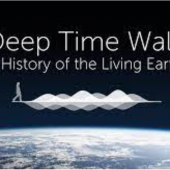
Abstract: At Schumacher College, Dartington, UK in 2008 we introduced the Deep Time Walk – a transformative learning experience in which college participants walk 4.6km in the countryside of the Dartington Estate representing the entire 4,600 million years of our planet’s history. The aim of the walk is to increase the ecological awareness of participants by giving them an embodied experience of the immense age of our Earth. At certain points during the walk a facilitator explains key events in earth history, such as the formation of the planet and the first appearance of living cells. Here we assess the effectiveness of the Deep Time Walk offered to eleven distinct groups of walkers during 2022 -2023. Participants on each of the eleven Deep Time Walks were asked to respond to a simple questionnaire asking them to quantify how much of seven qualities they felt immediately before and immediately after their walk (these were: Awe and Wonder, Sense of Earth’s Ancientness, Connection to Nature, Consequences of the Crisis, Hope, Commitment to Personal Change and Commitment to Political Change) . In total, 153 participants took part in the eleven walks and responded to the questionnaire. Analysis of the data showed a highly statistically significant increase across all seven qualities (p<0.00001 for each quality), suggesting that the Deep Time Walk is an effective means for developing and enhancing ecological awareness and commitment to action in these times of severe global crisis. Qualitative data were not collected during this phase of the study due to time limitations during walks. We recognise the importance of this kind of data and are devising ways of gathering it for both past and future walks.
Continue Reading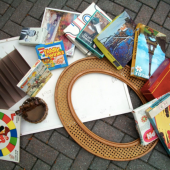
Abstract: This photo essay illustrates my journey of decluttering my childhood home. I have spent eight-months decluttering so far. Interestingly, I initially planned to declutter quietly and not document my experience. But the more I decluttered, the more I felt there was a story to tell, a cautionary tale of sorts. In this essay, I document my reflections on decluttering and raise questions about Western consumer culture. Logos and brand names have intentionally been edited/removed from photos.
Continue Reading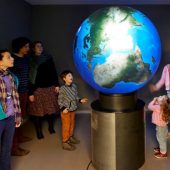
Abstract: This paper reports part of a larger study on the development of systems thinking skills in German 7th grade comprehensive school students regarding the climate. Research has shown a fragmented understanding of climate change among students that hardly accounts for the dynamic interrelations in the climate system and may pose a barrier in understanding adaptation and mitigation strategies (Shepardson et al., 2017, 2011, Calmbach 2016). While much is known the impact of short-term interventions on the general system understanding of students, what is lacking to date is 1) a specific intervention on climate system understanding and 2) insights into the process of developing system understanding in students. Helpful insights in this context come from Conceptual Development theories for they allow the development of systemic thinking to be viewed in terms of conceptual expansion or conceptual change. Starting from these desiderates, a teaching-learning sequence was developed based on the SYSDENE model of system competence (Frischknecht et al. 2008). In the sequence young learners systematically link experiences from formal science education with the experiences at three non-formal learning environments. A mixed-methods approach was used to explore the impact of this 3-month sequence on 19 7th grade students. A written pre-/post-test suggested a significant improvement in Climate System Reconstruction for the group (pre-test Median = 6.75 vs. post-test Median = 12.5, Wilcoxon Test: p = .003, r = .82). However, a qualitative analysis of classroom conversations, interviews and concept maps indicated that cognitive development toward a higher level of system thinking was neither continuous nor did every student reach it. Moreover, the SYSDENE model’s Competence Area “Describe System Model” proves critical. Being able to describe the main climate system factors is not sufficient, one also needs to be able to distinct weather from climate and grasp several scientific concepts related to the climate (e.g. greenhouse effect, water cycle, evaporation, reflection) in order to understand climate as a system.
Continue Reading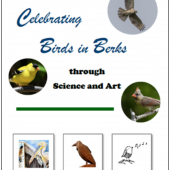
Abstract: Sustainability depends on biological diversity and the investment of individuals and communities in maintaining ecosystems. To engage the public in local biodiversity—specifically birds—we developed a program combining science and the arts. The science involved a group field experience, led by area birders guiding observations and providing information on the birds; the arts produced written reflections and visual representations of the birds and birdwatching. The integration of experiences, as manifested in field notes, artwork, and writing, reinforced understanding of, as well as interest in, birds and their natural habitats. In short, the data confirmed that participants gained a deeper appreciation for the natural world when seeing it in the contexts of both science and creative expression.
Continue Reading
Abstract: The contribution first outlines the state of research on the relatively new Fridays for Future (FFF) movement and categorises first studies particularly from a German perspective, to provide a basis for a further differentiation in this field of research. In this context, fundamental aspects of the movement are presented. The self-concept of the German Fridays for Future movement in terms of a young protest movement with a global orientation is then compared against the educational tasks stipulated in the school legislation of the federal states (Bundesländer) with their societal-educational objectives. The contribution focuses on the question in how far the self-concept of the German branch of the FFF movement as an international protest movement and the activists’ engagement for climate protection and political participation is reflected in the educational objectives stipulated in school legislation. Statements are analysed regarding climate and environmental protection, participation and democracy and transnational references in the school legislation. A link can be found between the self-concept of the Fridays for Future movement and school legislation, but this does not resolve the conflict between the school strikes and compulsory schooling – a conflict that is intended by FFF to highlight the perceived urgency of the cause. Schools, educational administrators and educational policymakers are thereby urged to take a stance.
Continue Reading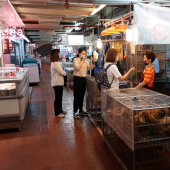
Abstract: This article provides a case study of place-based sustainability education on the use of plastic bags in a wet market in Hong Kong. We organised two field trips and engaged 20 students in conducting both quantitative and qualitative research in the wet market to examine single-use plastic consumption. Our research has found that at least 1 million plastic bag is consumed on a daily basis in all the wet markets in the city of Hong Kong. Qualitatively, we found that some of the vendors may use plastic bags as a sale strategy and to engage with customers in conversations. In contrast to the conventional schooling that promote sustainability or plastic reduction in a very abstract sense, the place-based education we attempted aims to critically rethink the concept and knowledge of sustainability in ways that also empathize with the local tradition, and remain critical of modern corporate branding, and modernization discourse. The paper ends with a discussion on reflecting plastic use in traditional wet markets in contrast with chained supermarket shifting to more plastic pre-packages.
Continue Reading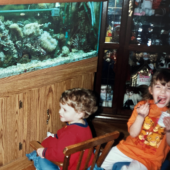
Abstract: Gaining a better understanding of human behavior change is vital to encouraging individuals to adopt an environmentally sustainable lifestyle and to the long-term goal of preserving nature. To explore how life experiences lead to the adoption of environmentally sustainable behaviors, this author turned to autoethnography. Through this reflective method, the author examines their development of environmental identity and their experiences with nature, as they relate to major concepts within the field of conservation psychology, such as ecological literacy, Theory of Planned Behavior, and connection to nature. Leading concepts concerning environmental identity in the conservation psychology literature suggest a very specific pathway for developing environmental identity, and thus pro-environmental behaviors, including experience in nature from a young age, the presence of an environmental mentor, and access to environmental literature. However, the author reveals that there may be other pathways to development of environmental identity, which include virtual environmental mentors (e.g., nature TV show hosts), environmental media (e.g., magazines, documentaries, and internet sources), and other methods of driving emotional connection to nature (e.g., sense of place). Alongside the author, the reader will have the opportunity to consider their environmental experiences and factors influencing their environmental identity, in relation to these major concepts within conservation psychology.
Continue Reading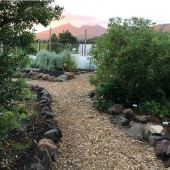
Abstract: Finding love and reciprocity in the garden during challenging times by growing community-based learning experiences.
Continue Reading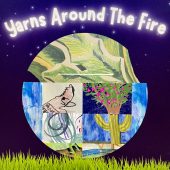
Abstract/Description: What happens when educators and professionals take a long-standing pedagogical activity, The Council of All Beings, and reshape the experience into a picture book? This paper provides a link to the story and relates the storytelling process that occurred with such an adaptation. The paper then explores the benefits of storytelling for young people and considers how co-creating stories can be an antidote to ecophobia while fostering empathy and sparking emotional engagement in the natural world. Finally, the author suggests that co-creating storytelling activities and picture book creations could be used to help children reimagine the world.
Continue Reading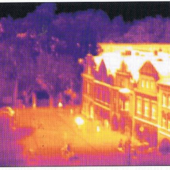
Abstract: A brief history of climatological science sets the stage for understanding the rise of the greenhouse gas thesis. That science is true as far as it goes, justifying our confidence, but it is an incomplete assessment of climatic systems. We have spent 40 years accepting the “pot lid” as the cause of the pot boiling over. That the “sun-warmed surface” impacts climate has been known for nearly 200 years. But greenhouse science failed to incorporate that and other scientific findings on urbanism, water cycles, and land management practices. To remedy this, I propose a broad climatic paradigm to address the actual cause of warming and provide a far more hopeful future with ample opportunities to resolve over-heating more completely, locally, and in a matter of months, years, or maybe decades, instead of centuries. Lastly, I discuss the significance of paradigm change, a new approach, and an expanded curriculum as challenges to sustainability education.
Continue Reading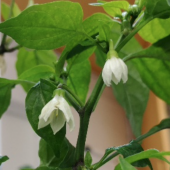
Abstract: To successfully implement the UN’s Sustainable Development Goals (SDGs), we must encourage all citizens to work together to enable a good life not only for us now but future generations too. In this article, we present an experiment carried out in autumn 2020 on a smart aeroponic garden. The goal of the experiment was to learn more about aeroponic cultivation and IoT technology and to acquire the know-how that would enable the participants to influence the environmental burden of food production. Our experiment showed that technology could also be used to introduce sustainable development themes to reach those target groups whose attention could not be attracted through other methods.
Continue ReadingAbstract: Many have written about the different ways people participate in authentic scientific research. However, some of the means used to engender public support in research may prove ultimately counterproductive. In this opinion piece we argue that science is not fun much of the time, and more importantly that fun in itself is not an end goal in engaging public audiences. To draw participation, we need to focus on motivation; which can include fun some of the time.
Continue Reading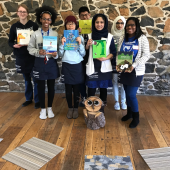
Abstract: A partnership between a university and local arboretum was expanded to include the campus library as a collaborator. Instead of having sustainability-themed programming between the two institutions focus on just the environmental components of the Sustainable Development Goals (SDGs), a library brings attention to literacy and information access across all aspects of the partnership. We share two public programs held between our university and an arboretum with strong involvement by the library in the development and execution stages, thereby increasing the connections across the SDGs and progress towards the 2030 agenda.
Continue Reading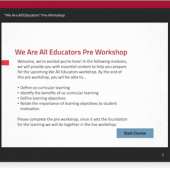
Abstract: Staff members play an important role in guiding students through living lab sustainability projects at Harvard University. Since there are significant opportunities for co-curricular learning in these settings, we created the “We Are All Educators” professional development workshop to empower those staff members to optimize and track student learning throughout these projects. In this case study, we will briefly summarize key principles of CCL and discuss its benefits as a tool for sustainability education in higher education. We will also describe our planning and implementation process for the workshop, the content of our training materials, and the results. Finally, we will end with key takeaways, as our workshop may be applicable to co-curricular learning in a variety of higher education contexts.
Continue Reading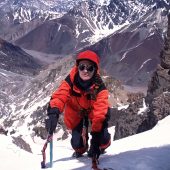
Abstract: Glacial archaeology is an emerging field of scientific research, rapidly expanding in Scandinavia, the Alps and North America. And yet its origins are to be found in the Andes of Argentina. Constanza Ceruti is the first woman high altitude archaeologist in history. Her pioneering contributions to this field of research involve having ascended and explored, sometimes solo and unsupported, more than one hundred peaks above 5000 meters in remote corners of the Andes. In 1999, Ceruti codirected the scientific excavations on mount Llullaillaco (6739 m), the highest archaeological site in the world, and co-discovered three extraordinarily preserved frozen mummies, together with an outstanding collection of artifacts from the Inca civilization (currently housed at the Museum of Mountain Archaeology in Salta, Argentina). In recent years, Ceruti has climbed hundreds of mountains in different parts of our planet, to study (from an anthropological perspective) their role in pilgrimage, folklore, popular devotion, mythology, identity and tourism. Her academic production includes more than one hundred scientific papers and twenty-five books on sacred mountains of the Americas, Europe, Asia, Australia and Polynesia. A northern hemisphere predominance in anthropology at large, and particularly in high mountain and glacial archaeology (associated also with mobbing and male chauvinsm in mountaineering), have led to a lack of proper recognition, not only for her own pioneering career, but for the rightful place of the Andes at the forefront of academic research on the sacred role of mountains in ancient cultures.
Continue ReadingAbstract: I was slow in coming to see the desperate need of sustainability education, in part because of a missed opportunity in my field of outdoor adventure education (OAE). Although a burgeoning set of scholars agree that OAE is strategically placed to educate for sustainability, little change within our discipline has occurred. To encourage the transition, this paper has four central aims. First, I contextualize the implications at stake by summarizing recent scientific predictions around climate change. Second, I differentiate sustainable OAE into the sustainability of OAE (e.g., its practices, footprint size, etc.) and OAE for sustainability (e.g., curricula that promotes education about sustainability), noting that despite long-standing petitions to address both, progress has been made in neither. Third, I celebrate, with others, the inherent potential that OAE has to promote sustainability through its educating in natural environs, within living/learning communities, which utilize physical/sensory, affective and intellectual ways of knowing that inspire critical impulses. Fourth, I outline the central changes that need to occur in order to create sustainable OAE. The foremost change needed is for OAE programs to curricularly commit to promoting a sustainability worldview, including values, knowledge, dispositions, and agency related to environmental, social, and economic justice. However, change of this depth will require a revision of OAE course offerings that allow for multiple and prolonged participant engagement over time. Such engagement, then, necessitates that OAE shift its emphasis from remote and sublime landscapes, to programs that not only connect participants to the places in which they reside, but cultivate a care and affection for them. This appreciation can be created through a combination of adventurous learning and microadventures. In sum, “local landscapes, far more often, as a way of life” encapsulate the changes OAE might make in contribution to the global need of sustainability.
Continue Reading
Abstract: After 20 plus years as a sustainability educator, the author had one of those lie-awake-at-night-staring-at-the-ceiling experiences where she faced some hard questions about the state of the world. In this article, describes her subsequent journey investigating the role of listening in shifting to a life-sustaining society and her Ph.D. research into how to support listening across differences to address complex social-ecological challenges.
Continue ReadingAbstract: In 2008 astronauts aboard the International Space Station captured an image of sunlight as it passed through the Earth’s thin atmosphere, described as the thin blue line of “all that stands between life on Earth and the cold, dark void of space.” At the center of sustainability education is a discourse of climate change and life’s demise on the planet. In this short article, the contributing role of the United Nations University’s Regional Centres of Expertise (RCEs) for sustainability education is explored with respect to community-based climate change adaptation, notably through RCE Dhaka (Bangladesh) as an example of the challenges and opportunities for climate change adaptation in one of the most heavily populated megacities of the Global South.
Continue ReadingAbstract. This study investigates whether children at an urban place-based environmental education camp can develop three dimensions of eco-character development after week-long participation: Head (knowledge), Hand/Feet (action), and Heart (care/connection). Using a community-based and inquiry-driven curriculum, campers practiced the roles of an arborist, ecologist, and environmental steward. Fifty-five Campers were assessed on all three dimensions using a 10-question pre/post-survey. An overall increase in content knowledge, relationships with nature, and motivation for pro-environmental behaviors were found. Outdoor environmental education summer camps and other out of school experiences may be the new avenue for educators and instructors to consider when trying to promote positive eco-character development in future generations.
Continue Reading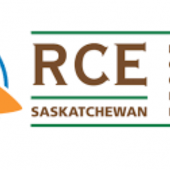
Abstract: Three decades ago Julius Nyerere (1990) wrote Challenge to the South. In response to the legacy of colonialism, Nyerere challenged the nations of the Global South to advance their development and to free their people. These concerns are as relevant today as they were in the 1990s. Established for the United Nations Decade of Education Sustainable Development in 2005, there are now over 175 Regional Centres of Expertise (RCEs) on Education for sustainable Development (ESD). This paper offers a case study of RCEs worldwide with a particular focus on challenges, and responses, including a focus on the select Sustainable Development Goals (SDGs) of poverty and health. Further, an account is given of RCEs which have attended to the recognition of Indigenous and traditional ways of knowing.
Continue Reading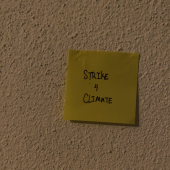
Abstract: This editorial discusses the intersection of environmental and racial justice and how the movement has failed to center voices most affected by climate change.
Continue ReadingLink to the Ecomedia Literacy Table of Contents Lopez et al. Editorial Overview JSE April 2020 Ecomedia Literacy PDF Forward from JSE Editor-in-Chief, Clare Hintz: The Journal of Sustainability Education marks its tenth anniversary year with an issue on Water Literacy (published in March) and this issue, Ecomedia Literacy. From a dream of several Ph.D. […]
Continue ReadingAbstract: The field of media education, emerging within the instrumental vision of modernity, has largely ignored its unspoken modernist assumptions. In this article, we argue the time has come to fully engage an embodied view of media from an evolutionary, ecological perspective—what we might call ecological modernism. This is a perspective that views media as evolving mediations through various material/technical practices, where body knowledge, rather than some idea of objective reality, is understood as the empirical ground for how we come to make sense of ourselves and the world. The focus is then shifted from the problem of subject versus object relationships to how subjects and objects are mutually constitutive. By extension, the juxtaposition of the concept of citizen with the body clarifies yet another crucial dimension of the embodied perspective. Two examples of “citizen”-based media education projects are briefly reviewed from this ecological modernist perspective in order to consider the implications of resituating grounded citizen-oriented media education.
Continue Reading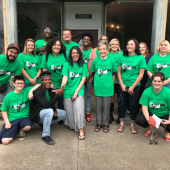
Abstract: In the summer of 2019, the We are All Connected urban-rural youth media program launched Something in Our Water, an eco-media documentary project that investigates the shared problem of water sustainability, public health, and climate change in their communities. This article discusses the transformative experience that the youth from New York City and the Clearfork Valley in the East Tennessee Appalachian mountains had as they learned about the history of multinational coal mine companies’ economic and environmental exploitation of the community, and the fierce and unequal power relations that continue to challenge environmental advocates today. With a focus on the perspectives of one of the Tennessee youth producers, the article reflects on the impact intergenerational learning and multicultural collaboration can have in nurturing future youth and community eco-media activists in Appalachia in the face of deeply rooted local and structural constraints. Through the process of documenting struggles in urban and rural communities, the youth team developed a deeper understanding of how the environmental justice movement cuts across differences to show how everyone is connected and can be empowered to take action.
Continue Reading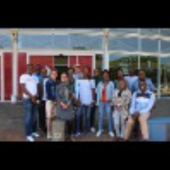
Abstract: Reporting to the public on climate change impacts, adaptation, and mitigation requires journalists to be equipped to engage with a wide range of technical content in order to communicate it in an accessible and engaging way. Recognizing the need for journalists from a wide range of backgrounds, including those from community newspapers and radio stations in South Africa, to be able to undertake this task, the South African Department of Environment Affairs in partnership with GIZ commissioned the authors to develop and deliver a four-day climate change reporting training programme. This paper presents an overview of the structure and content of the course, and details the reflections after undertaking such an endeavor.
Based on the lessons learned, and an awareness that this kind of training may take place in the context where working community-level journalists may have a low knowledge base (of both the journalistic craft, as well as the content of climate science) the following recommendations emerge: scientific training may need to be combined with basic journalistic training (depending on the participants); learning-by-doing is central to journalists building their capacity in climate reporting training; and mother-tongue delivery of material is critical to the success of such technical training courses.

Abstract: The shift away from coal to renewable energy for electricity generation is producing environmental benefits during the climate crisis but also poses uncertainty for coal producers and others along the coal supply chain. Media representations of the coal debate shape how citizens understand and respond to it. This commentary exposes how audiences – even of pro-environmental media – reproduce dominant discourses promoted by fossil fuel corporations and reconceptualize those discourses into a Not in my Backyard (NIMBY) worldview. Critical discourse analysis helps to reveal how tensions between coal companies and renewable energy proponents are exacerbated by controlled coal messaging. Coal propaganda evokes images of a noble and reasonable energy source and places coal within a positive framework that enhances local knowledge, protection, and economic security. Conclusions point to the importance of media literacy instruction as a means for consumers to gain critical distancing strategies and broader perspectives about the climate crisis.
Continue ReadingAbstract: This paper examines the ecologically oriented speculative fiction genre known as “solarpunk” and its value for the cause of environmental justice. This article argues that the status quo is characterized by relative inaction on the issue of fighting climate change and that this inaction is the result of an inability to imagine a “green” future. As a form of speculative fiction which explicitly depicts such green futures, solarpunk may be a valuable tool in promoting action by overcoming widespread cynicism about the future. Solarpunk fiction is thus a useful tool for sustainability educators because it encourages critical examination of one’s environmental impact. This article details the ways in which solarpunk stories function as counter-hegemonic media by intertwining issues of race, gender, sexuality, class, and colonialism with an ecological ethic.
Continue Reading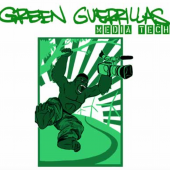
Abstract: The Green Guerrillas Youth Media Tech Collective, a community organization based in Ithaca, New York, set out to define sustainability in their own terms by giving a diverse group of local adolescents the opportunity to engage subjects of environmental and social justice through digital media production within the auspices of a unique afterschool job-training program. Interviews with youth participants and adult mentors illustrate key concepts for environmental and sustainability educators desiring to facilitate engaging learning environments utilizing multimedia. Excerpts of their interviews provide a lens into the workings of a non-formal educational environment that explicitly embraced media literacy, media arts production, and community engagement to advocate for issues of justice and sustainability while facilitating opportunities for ecological learning. This case study highlights the potential of digital storytelling to foster students’ knowledge retention, connection to nature, sense of empowerment, and ability to create positive change in their communities.
Continue Reading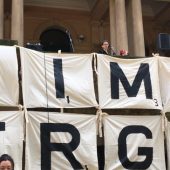
Transformative sustainable pedagogy and public intellectual work share the same aims and guideposts, including upholding higher education’s foundational intentions of fostering moral character in tomorrow’s leaders. Radical modes of sustainable education, including regenerative pedagogy, which tends to the global shift to restore, respect, and regenerate ecological and societal balance, and inside-out pedagogy, which helps learners take their inner seeds, sprouts, and blossoms of good ecocultural intentions to stages of external fruition, speak both to educating learners and engaging the public. If pedagogues aim to encourage students to put beliefs into action and be leading voices in ethically addressing today’s pressing environment and society problems, this may require role modeling by having the courage to do so themselves. In these contexts, the author relates her own experiences speaking for Extinction Rebellion as an illustration of expanding notions of what it means to be a sustainability educator today.
Continue ReadingThis editorial overview provides an introduction to this special Journal of Sustainability (JSE) issue devoted to water and climate change, which is being released during United Nations World Water Day 2020. The article contextualizes some of the water security risks that are exacerbated by climate change, such as increasing floods and droughts. This piece further provides a brief overview of the articles in the special water and climate issue of the JSE.
Continue Reading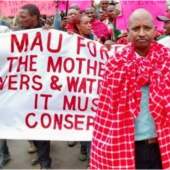
Abstract: This article posits that Maasai Indigenous activists’ call to save Kenya’s Mau Forest Water Tower for its ability to protect downstream water security has emerged as an environmental-policy microcosm illustrative of globally surging interest in such Nature-Based Solutions (NBS). Through an analysis of the Mau Forest issue, a series of United Nations Development Programme case studies, and increasing inclusion of NBS for water at recent global policy events such as the United Nations General Assembly and World Economic Forum, this article suggests that a new water infrastructure policy paradigm appears poised to increase implementation of NBS-informed by Indigenous and Traditional Ecological Knowledge (ITEK). The potential of this paradigm shift is illustrated by the North American Indigenous Mi’kmaq concept of Two-Eyed Seeing, which encourages the synthesis of solutions from both western-emanating Scientific Ecological Knowledge (SEK) and ITEK on a path toward positive social-ecological outcomes.
Continue Reading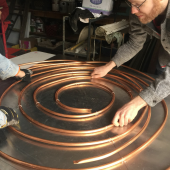
Abstract: Part Two of a two-article series describes water conservation through graywater use and rainwater harvesting. Sustainable methods of heating water for a recirculating shower, and potential methods for water filtration and purification are presented. Also addressed is the feasibility of sustainable showering alternatives. An opportunity for educators and students to collaborate in the development of an off-grid recirculating shower is provided as well.
Continue Reading
Abstract: Part One of a two-part article outlines a brief history of showering and questions current showering practices. Current global levels of water use and availability are discussed, plus water use in the United States, relative to Americans’ frequency of showering. The energy requirements for cities to provide clean water is outlined as well as the carbon dioxide emissions that are subsequently released during water delivery and wastewater disposal. In Part Two, water conservation through graywater use and rainwater harvesting is described, and sustainable methods of heating water are offered. Possible methods for water filtration and purification are presented. The feasibility of alternatives for a more sustainable shower is addressed. Both articles conclude with an invitation to students and instructors to collaborate with the author to construct a prototype of an off-grid recirculating shower.
Continue Reading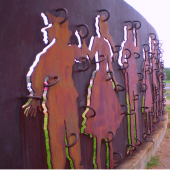
Abstract: In this article, I view Alvarez Armando’s “We the People” sculpture in Gallup, New Mexico, through the lens of Plato’s “Allegory of the Cave” and argue that although the message of the “We the People” art installation is to illustrate democracy and freedom, its staticity may contradict its intent and adds an additional layer to its interpretation. The “We the People” art sculpture invites interaction, but interaction, like in Plato’s “Allegory of the Cave,” is limited in scope and perception. My exploration comes with questions about the meaning of cave dwelling and enlightenment. What is the meaning of “We the People” when equality is not something every citizen can take for granted? Are we then an enlightened society that think we have gained exit from cave dwelling when freedom and a particular interpretation of democracy is not designed for everyone?
Continue Reading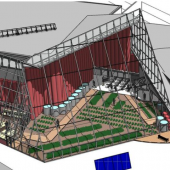
Abstract: The new educational revolution of Educating for Sustainability needs to be taught in a new, revolutionary teaching space; a teaching bioshelter. Drawing on the five ecological principles of the Center for Ecoliteracy, this new teaching space should reflect ecocentric design principles, rather than the previous anthropocentric industrial designs of our current school and college classrooms and campuses. A solar-powered, living classroom, a system of systems, such as a teaching bioshelter, opens new educational horizons by providing continuously available and hands-on learning environments not currently available to the Educating for Sustainability (EfS) curriculum. Fortunately, the architectural and technical design work for these kinds of spaces was pioneered nearly 50 years ago by numerous cutting-edge research groups, such as the New Alchemy Institute. It is suggested that these two ecological flows, of design and education, be joined to enhance and expand the mission of Educating for Sustainability.
Continue Reading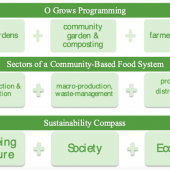
Abstract: This program feature documents our reflections on how the work of O Grows, is, or more accurately has become, increasingly sustainability-oriented. O Grows is a non-profit, community-university partnership with the mission to leverage the local capacity in service of community food needs. Specifically, we focus here on how engagement with an increasing number of sectors of the local food system, as we work toward this mission, has demonstrated a commensurate increase in alignment with the cardinal directions of the sustainability compass—attention to Nature, Society, Economy, and Wellbeing. We have realized, as O Grows has evolved, that keeping the program going and attending to sustainability are one and the same. As such, we argue the sustainability compass is a useful heuristic not only for reflection after-the-fact but also for partnership planning.
Continue Reading
Abstract: Household composting is a practical sustainable behavior which should be further investigated. The Short Composting Survey was developed for use during the Compost Project pilot study to measure the knowledge, values, barriers, and social norms surrounding composting (n=25). The purpose of this research was to describe the testing and refining of the survey tool for the pilot study. Statistical analyses included calculating the Index of Item-Objective Congruence (IIOC) values and conducting a confirmatory factor analysis following administration of the survey. Nine respondents assisted with survey tool development by completing the IIOC, and values ranged from 0.29 to 0.66 which indicated that all of the survey questions matched more than one construct. The factor analysis resulted in a three-factor solution with a cumulative loading of 71.2%, meaning that these identified factors contributed 71.2% of the variance in responses. Factor 1 (“Values”) proved to be the strongest factor, explaining 36.6% of the variance, whereas Factor 2 (“Social Norms”) explained 20.04%, and Factor 3 (“Barriers”) had 14.6%. This survey may be useful for future food composting and sustainability-related research efforts.
Continue Reading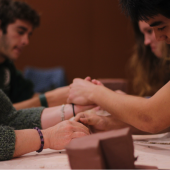
Abstract: This article describes an innovative, grant-funded symposium for creative social stewardship that sought to blend the triad of art, education, and the natural environment through a focus on socio-cultural sustainability and community engagement. The purpose of this article is to share foundational information related to the origins of the symposium, describe the tenants of community arts initiatives, feature a session snapshot, and discuss the value of creative social stewardship as a part of daily practice. We conclude by making recommendations for future endeavors in cultivating creative social stewardship conferences or initiatives, ultimately promoting the idea that collaborative, community-based and arts-focused events might inspire reflection on connection, nature, and creativity in ways that nurture sustainability.
Continue Reading“The Community Food Forest Handbook: How to Plan, Organize, and Nurture Edible Gathering Places” by Catherine Bukowski and John Munsell is a rare edition to the literatures of permaculture and agroecology: it foregrounds sociocultural dimensions in the context of ecological design.
Continue Reading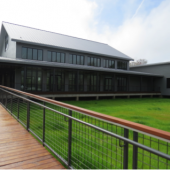
An Urban Nature Center: Take 2. My Journey to Sustainability Education in Rebuilding a Nature Center
Continue ReadingAbstract: The research coordination network (RCN) – Climate, Energy, Environment and Engagement in Semiarid Regions (CE3SAR) is a NSF funded five-year project (2012 to 2016, extend to 2017). One goal of the RCN CE3SAR project is to enhance sustainability education in South Texas. To achieve this goal, the RCN CE3SAR steering committee adopted two strategies: creating learning objects and supporting open education. This article reports the process and methods of creating and publishing RCN CE3SAR sustainability learning objects as open education resources.
Continue Reading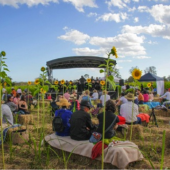
Abstract: Solutions to environmentally damaging human practices require cooperation between many different communities. This article explores sustainability-focused education through the lens of a current work-in-progress, Sugar vs the Reef?, which involves collaboration between sugarcane farmers and artists in the arable catchment of the Great Barrier Reef in North Queensland. This is a socially engaged art project that is addressing the fraught relationship between the region’s agriculture and the fragile ecology of the Reef. We introduce some of the specific aspects of socially engaged art (SEA) which commend it as a cross-disciplinary method for bridging diverse individuals and organisations – in particular, the notion of a “holding environment” for complex socio-ecological situations. We consider how this approach might broaden the agricultural practice of “extension” which aims to transform farming through educational outreach. Ideas emerging from contemporary socially engaged art practice may contribute to a toolkit for researchers and practitioners within and beyond the academy who are searching for ways to overcome the limitations of current methodologies and movements for social change.
Continue Reading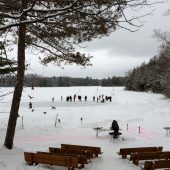
Abstract: In this article, we examine the collaborative efforts of university-employed folklorists with Waaswaaganing Anishinaabe (Lac du Flambeau Ojibwe) teachers and community leaders in what is currently known as northern Wisconsin. Focusing on the Ojibwe Winter Games—an annual weeklong event in February for middle school students that aims to revitalize traditional competitive games—we suggest that decolonizing sustainability education requires recognition that sustainability is pluralistic and culturally specific. Educators must facilitate a restorative systemic shift towards Indigenous sustainabilities through Indigenous-centered pedagogies and methods of knowledge production. In order to accomplish such a shift, our responsibility as academics and public folklorists must always be to the Indigenous communities with whom we work. We explore the role of non-Indigenous collaborators in Indigenous-led decolonization efforts, in developing educational systems that support and sustain Indigenous knowledge systems, and in the repatriation and rematriation of land, language, and culture.
Continue ReadingAbstract: Throughout 2016 and 2017 more than 300 Indigenous nations from around the globe united on the plains of North Dakota, where Standing Rock affinity camps provided space for native prophecy and ceremony to play out in ways meaningful to our modern times. Standing Rock protection actions made clear to all what we’ve known for centuries: Indigenous peoples’ relationship to the natural world provides a powerful antidote to the prevailing madness that insists nature and people are expendable as long as money is being made. Within our own Rotinonhsyón:ni (Iroquois) nations the act of gratitude is at the heart of our key ceremony that connects us to our Earth as it dissipates this violent culture.
Continue ReadingThe White Kid at the Native American Camp
Continue ReadingAbstract: Decolonization is a multifaceted and complex process, involving a wide range of concepts, including the restoration of Indigenous lands to Indigenous control, improved recognition of tribal sovereignty, strengthening of Indigenous worldviews and knowledge traditions, cultivating cultural responsiveness in education and health care, aligning research methods with Indigenous cultural priorities and values, and more.
This special issue of the Journal of Sustainability Education on the topic of Decolonization and Sustainability Education reflects many of these diverse projects. The issue is inclusive of Indigenous and allied voices, of academic and Indigenous discourses, of large-scale political actions and—what Jeff Corntassel calls—“everyday acts of resurgence.” The selections are arranged in ways that center Indigenous voices and the work on the ground that reinforces Indigenous sustainabilities and Indigenous-centered pedagogies.
Continue ReadingAbstract: Since the 1990s research has been telling us that indigenous students do better in school when they are connected to their cultures. Our experience affirms studies concluding that students who have strong connections to their culture are more resilient and have a stronger sense of efficacy.
Continue Reading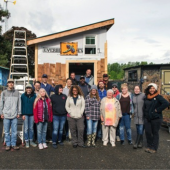
Abstract: Two tiny houses were constructed for the homeless at Dignity Village, Portland, Oregon, by Portland Community College students in two sustainability courses over 6 terms, using different approaches. By engaging the business community at large, various non-profits, parents of the students, and residents of the homeless village, the idea of community-based learning (CBL) was embraced by the instructor. CBL created an environment in which lack of experience and wide cultural variation were transformed into a cooperative community of inspiration.
Continue Reading